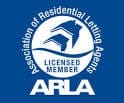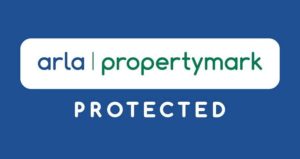How to Rent Guide
As a new tenant, the rental process can be quite overwhelming. In this regularly updated rental guide, you will find all the current and essential information you need to know about renting property, offering guidance through every step of the letting process.
When you enter an assured shorthold tenancy you are entering into a contractual arrangement. This gives you some important rights but also some responsibilities. This guide will help you to understand what questions to ask, what your rights are, and what responsibilities you have as a tenant.
This rental guide covers the following important areas:
- What preparation you need to undertake before you start
- What you should consider when choosing a letting agent or private landlord
- What your landlord must provide you with
- Responsibilities of both tenants and landlords in a rental agreement
- How to terminate or extend a tenancy agreement
- What to do if something goes wrong
Click here to download the full rental guide.
Please be aware that this guide is for individuals who are looking to rent a house or flat, although most of it will also apply if you are in a shared property, with some exceptions.
Applying for a Rental Property
The process for applying for a rental property is relatively straightforward. For full details, one of our advisors will be happy to support and guide you through this process 01372 731966
Tenant Assessment
- Any individual aged 18 years or over, must be named as Joint Tenants
- Each tenant will be assessed for an equal share of the total rent payable for the property
- Where a Joint Tenant is not contributing to the rent, a credit and identity check is required
- If your combined income does not meet the requirements of the agreement, a guarantor may be needed
Required Documents
When applying for a rental property, as you would expect with most official applications, we will require two original forms of identification which confirm your name and address. You will need to bring these to our local offices. The documents we require are:
- Passport
- Recent Bank statement or Utility bill (dated within last 3 months)
Before completion of the contract, we will also require satisfactory references.
Tenant Fees Act 2019 – Schedule 1
As per the above Act (June 2019) please find Cairds Permitted Tenant Fees.
Rental Deposits
Before a tenancy agreement commences, as a tenant you will be required to pay a security deposit. Deposits vary in amount depending on the price of the property you are renting. You can expect to pay the following:
- Standard Security Deposit – 5 weeks rent
A security deposit acts as a safeguard for the landlord, ensuring that any damage to the property or expenses incurred, for example, due to missed rental payments, are covered.
Deposits are held with a custodial government-backed scheme, the Deposit Protection Service, throughout your tenancy and are lodged by Cairds on your behalf. In some cases, the landlord may be a private member of a deposit scheme, in which case they will need to provide you with evidence of this.
The deposit will be released to you when the property has been vacated, a satisfactory inventory has been completed and all rent is up to date. In the unfortunate event that damage has occurred to the property or there is outstanding rent, the deposit will be used to rectify this.
Client Money Protection
Client Money Protection is a legal requirement for all letting agents who deal with client money from 1st April 2019. Under current legislation, the Consumer Rights Act 2015 made it a legal requirement for every lettings agent in England to display whether or not they are a member of a Client Money Protection scheme. Letting Agents in Wales are required to be a member of a Client Money Protection scheme (and display this to consumers) as part of their Rent Smart Wales registration.
Cairds (Epsom) Ltd t/a – Cairds The Estate Agents are covered by Property Mark Client Protection Scheme
Client Money Protection – Cairds – Client Money Protection Certificate
Client Money Protection 2025
TPO – Code of Practice for Residential Lettings Agents (1st June 2019)
Cairds Lettings complaints procedure





